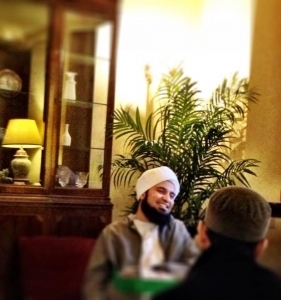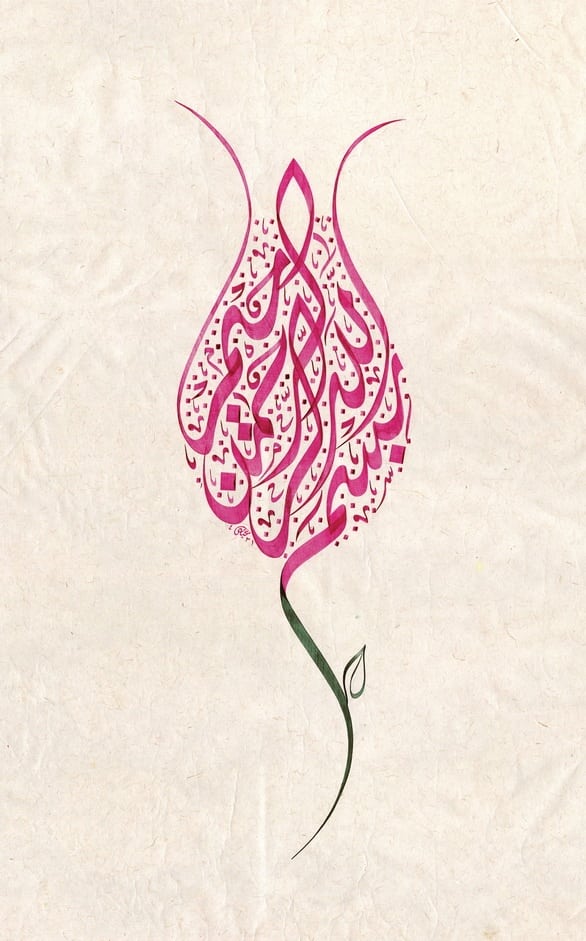Qualities & Characteristics of the Caller to God by Habib Ali al-Jifri
Linked from Habib Ali’s website:
The Beginnings of Success
The relationship one has with their self and the ties they have with others should be established on the account that there will be an attendance before God on the final day; when all of creation will be in a state of despair and desperation. 1
Muslims testify that everything in existence maintains a perpetual state of remembering God. It is God Himself who mentions in the Quran that “There is nothing in existence except that it glorifies Him”2 Just as we cannot cognise how inanimate objects glorify God, if we suffice ourselves with only our tongues glorifying Him and our spiritual states remain empty, inanimate objects won’t understand how we don’t glorify Him either.3
God says in the Quran, “And We wanted to reveal our favours upon those who are meek on the Earth, and make them leaders.”4 If you see impotence and weakness manifest intensely in a people who are recipients of a divine message, then know that it is the beginning of them having leadership (imama) conferred upon them. Before this authority is conferred outwardly it manifests evidently to the senses; it is seen, it is heard, it is felt. It resides in the heart and begins with subtle meanings that are implanted in the inward beings of people who have been appointed by God for it. God chooses the people who take charge of this responsibility, whom He described in His book as “A people who God loves and they love Him; gentle towards the believers and strong before those who disbelieve.”5 This is their state whether they are in conflict or otherwise. It resides in their hearts and does not change even when they have no choice to resolve a conflict except by armed means. God mentions “It has been prescribed for you that you must fight even though you may hate it.”6 Their hate to go into conflict and fight is an attribute of their inward state. 7
We read in history that a victory was held back for an army who had Umar b. al-Khattab amongst its ranks for the reason that members of the army had neglected the customary practice (sunna) of using the siwak. How much of the community lie? How many betray one another? How many steal? How many are content with retreating at night and they are consumed with hatred and rancour for others? How many retreat at night and they feel a sense of superiority over others? Who take themselves to have better understandings than others and a loftier rank, thinking that they will be saved and everyone else is doomed. How many think in that state?8
 The Power of Truth
The Power of Truth
A battle always has two sides: a side that thinks they have a right to might, a right to exert power; and a side that sees that their right is truth itself. Those from the first side see that as long as power is in their hands they possess all the rights, while the other side sees that their strength and their power lies in their standing with the truth. The world which we occupy is a stage for this battle, and it is the custom of God that those who side with the truth and see their right as truth itself, it is them upon whom God will confer custodianship of this Earth. 9
If a Muslim thinks like the one who has aggressed upon him, what is then the difference between them? How can he await success from God? God’s success is bestowed upon those who side with the truth, uphold it and remain steadfast with it. His way is not given success through violating His law. Remaining in adherence to these principles in our day and age is a jihad. 10
Once the companion Imam Ali b. Abu Talib, may God be pleased with him, was fighting against someone who transgressed against him. At the moment when he overcame his opponent and was about to strike him, the man spat in his face. Imam Ali paused momentarily and then walked away from the situation; he did not do anything to his opponent. When he was asked why he said “Up until the point he spat in my face I was fighting him for the sake of God. When he spat I feared that I would kill him out of anger and selfishness for what he had done to me.” Every action that is performed to help the oppressed and rectify injustice should proceed from this principle: walk on the part of truth by the truth itself. We should observe ourselves with deep insight and check ourselves and see if we are doing this for the sake of making the truth a victor or whether we’re doing this for the fervour of ignorance (jahiliya).11
By the degree that the hearts are made receptive to receive from the heart of the Messenger of God, upon him be peace, and from his characteristics, God will elect victors of the truth on the Earth. If wrongdoers inflict defeat temporarily in one’s wealth, person, and possessions, the day should never come when they defeat one in the heart, because the hope for giving victory to the truth, possessions and one’s honour begins in the heart. They must let God succeed in the heart, and if He does He will elect them to give success to truth on Earth.12
Divine Election 
Divine election, from its outset, is an affair of the unseen. However it has hallmarks, and these ultimately rest in one’s heart. To know if God has elected one, just as He chose His beloved ones , one need only to look towards the heart. Does the idea of being divinely chosen for good works resonate? Does the heart incline towards those whom God has chosen? Is the heart avid in desiring this rank from God? If these subtle signs or even some of them are discovered, then this is the beginning of the process. The Arabs say, birds of a feather flock together, so if the heart is moved at the mention of those who have been graced with being divinely chosen, then it is a sign that you are one of those people.
One of the companions came to the messenger of God, upon him be peace, and said, “I travelled through the day and night and I am filled with thirst and my mount is tired and fatigued, and it was just because I wanted to reach you before you leave this world to ask you a question.” The Prophet asked him, “What is it that you want to ask me about?” He replied, “My question is, what is the sign of those whom God chooses, and what is the sign of those whom God does not choose?” So the Prophet asked him, “In what state did you awake this morning?” Note here that the man asked about divine election and the Prophet asked him what his state was. He said, “I awoke this morning loving goodness, and joyous with any goodness I do, and saddened by any goodness that I missed….” “Enough,” said the Prophet, “these are the signs of God in those whom he chooses. If He wanted you for something else he would have prepared you for it.”13 Therefore, you doing the actions which prepare you for being chosen by God are like a herald to tell your heart that God is saying to you “Come”.
Possessing a love of those whom God has chosen is a sign of being divinely chosen for the Prophet Mohammad said “A person is with the one whom they love.”14 15
1 (1) Manchester 2001
2 Chapter “Al-Isra”, verse 44.
3 (12) London 2008.
4 Chapter “Al-Qisas”, verse 5.
5 Quran: Chapter: al-Ma’ida, verse 54
6 Quran: Chapter: al-Baqara, verse 216
7 (13) London 2009
8 Ibid
9 Ibid
10 Ibid
11 Ibid
12 Ibid
13 Hadith: in al-Mu’jam al-Kabir of al-Tabrani, 10/249:10312
14 Hadith: in Sahih al-Bukhari, The Book of Etiquette (Adab), Chapter: Signs of the Love of God, 8/39:6169 & 8/40:6167, and also in Sahih al-Muslim, The Book of Righteousness and Etiquette (al-Birr wal-Sila wal-Aadab), Chapter: A person is with the one whom they love, 4/2032:2639 & 4/2034:2640.
15 (15) London 2008
